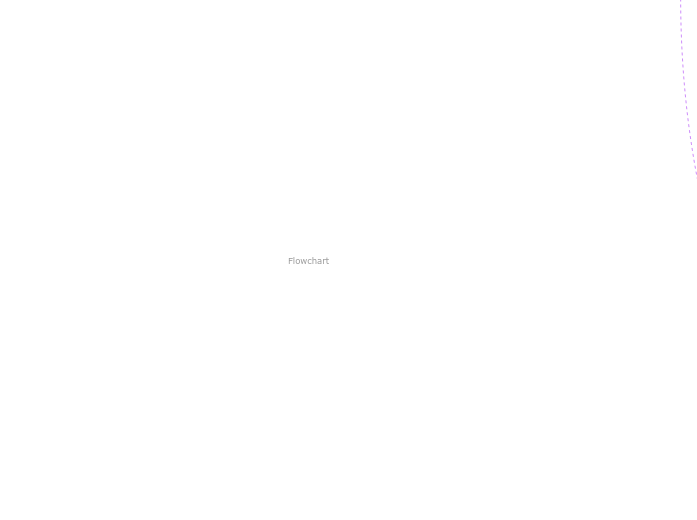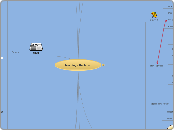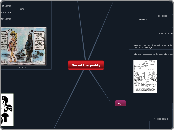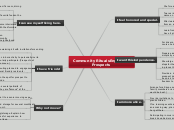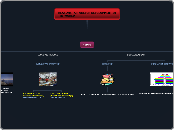Bryan Johnson on anti-aging
Floating topic
Technology as progress
But is technology always progressive?
Moral backwardness
Technology as human destiny
Modern warfare
Neutrality of technology
Technology is neutral if it falls into any of these categories:
Uncontextualized tool
Tool of science
Ambiguous use of technology
Social change
Technology facilitates change through information and communication technology for development (ICT4D)
Technological inequality
3 levels of technological inequality
1. Widening gap between capitalists and the workforce
2. The workforce demands more technological skills
3. Divide between industrial and developing countries
The Socio-technical approach
Tech and society mutually shape eachother
3. Vague on what gears support the mutual shaping process
2. Unclear on what links tech & society together to form a preliminary relationship
1. Vague in determining the cause of social change
Lecture 11: Ethical Dimensions of Technology
(Quan-Haase, 2013)
The Singularity
Lecture 10: AI and Transhumanism
(Farman, 2012)
3 main perspectives of surveillance
Lecture 9: Big Data and Surveillance Society
(Quan-Haase, 2013)
Lecture 8: Technology and Imperialism (Misa, 2011)
Techno-brain burnout
Lecture 7: Michael Harris' The End of Absence (Harris, 2014)
Relationships Transformed by Technology
The Toronto School of Communication
Ong
McLuhan
The medium is the message
Innis
Havelock
Content of thought & organization of thought
Lecture 6: Techno-Mediated Relationships (Quan-Haase, 2013)
Social capital
Public affects and private effects
Supplemental (includes 4 additional mediating factors)
2 emerging trends in the
Internet's effects of users
2. Networked individualism
Organic solidarity
Networked individuals
Socially connected individuals
Socially limited individuals
Mechanical solidarity
1. The richer get richer
Binding social capital
Bonding social capital
Type of Internet use
User's defining characteristics
Previous forms of community
User's previous Internet experience
Dystopian
Utopian
Wellman's 3 theoretical views
Community-liberated
Community-saved
Community-lost
The public sphere
The spiral of silence
Ideal speech situation
Gesellschaft
Nation-state
Gemeinschaft
Amish societies
Lecture 5: The Re-Imagined Community
(Quan-Haase, 2013)
Inherently political
Solar Power — decentralized
and democratic
Factories — centralized
and authoritative
Tools to order society
Low-hanging bridges
Lecture 4: Politics of Technology
(Winner, 1980)
Lecture 3: History of Technology
(Quan-Haase, 2013)
Additional Challenges of STS
Ultimate end-goal: holistic and qualitative approaches to STS
Utopia
Dystopia
Lecture 1: Defining Technology
(Quan-Haase, 2013)
Lecture 2: Theories and Concepts
(Quan-Haase, 2013)
Contemporary discussions of technology
Science, Technology, and Society
What mysteries lie in the cosmos?
What is beyond the physical world?
Using technology to answer metaphysical questions
What is human destiny?
AlphaGo
Utopian and dystopian narratives
Job loss
Medical usage, like
chemotherapy nanotechnology
Strong AI
Narrow AI
Deep Blue Chess Computer
Superlongevity
Bryan Johnson
Super happiness
Superintelligence
Philosophy
Transhumanism
Cultural view
Revolutionary view
Functional view
PANOPTICON
Sousveillance
Strategies for protection
Hierarchical observation
Normalizing judgement
Mourning online
Virtual stranger loss
Virtual mourning
1. Family creates a narrative of the deceased’s life
2. Family expresses their sorrow online
3. Family praises the deceased
4. Family asks for the deceased's help
Examination
Power
Rationalization
Capitalism
Counter-surveillance
New surveillance
Foucault and societal power relations
A tool of surveillance, especially
after the Indian Mutiny —
rebellion suppressant
The Indian Mutiny was intervened
by British troops because they received
a telegraph before the lines were cut
The Opium Wars between Britain and
China was won by the Britain
because of steam gunboats
Telegraphs
Railways
Steam engines
Religion
Christian missionaries
"debunk" Hinduism with
"Christian technology"
Race
White superiority
because of technological
strength
Indians are "lazy" for not
participating in the rape
of nature
Technologies that built
the empire via control:
British colonization of
India was justified by:
The impacts of technology depends on the user and the technology's embedded values
Supplemental
U: democratic and accessible information
D: New modes of communication dissocialize young adults
D: Screens nurture children
Solution? Slowly limit exposure to redundant technology until gaps are found in daily routines
Empathetic AI
Coursera.com
Rejection of the "orienting response"
Reading is unnatural
Streaming sites for a self-broadcasters
Dystopian and utopian
New online subspaces
Niche dating realms
Socially determined technology
Neuroplasticity
Celebrities like Whitney Houston, for example
3 ways of how social media becomes normalized as a tool for daily communication
1. Media ideologies
2. Idioms of practice
3. Second order communication
Breakups 2.0
1. Persistence
2. Searchability
3. Replicability
4. Invisible audience
Romance online
Friendships online
Time bias & space bias
Primary orality & secondary orality
Social
Construction
of Technology
1. Relevant social groups
2. Interpretive flexibility
3. Closure and stabilization
4. Wider context
2nd Industrial Revolution
3rd Industrial Revolution
4th Industrial Revolution
Basalla's theory of the evolution of technology
The Stone Age
Ancient Technology
The Renaissance
The Industrial
Revolution
Electronic Times
Information Society
Filipinos use cellphones more than they do the internet because of their cultural context
Socio-technical norms
Social informatics
Actor Network Theory
instrumentalism
Feenburg's theory of technology
Augmentation
Simulation
Challenges in STS
Target groups & technological inequality
Ethics
Non-linear direction & recursive patterns
Changing social uses
Unprecedented social change
Rapid technological advances
Technological society's ethical and moral breadths
Primary book themes
Too narrow, broad, and abstract
Technology defined:
Material substance, knowledge, practice, technique, and society
Technology is an ASSEMBLAGE of various factors, such as attitudes, norms, beliefs, and social context
Flowchart
